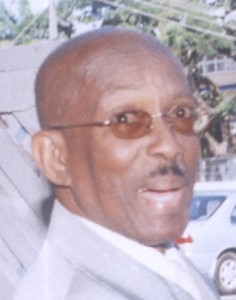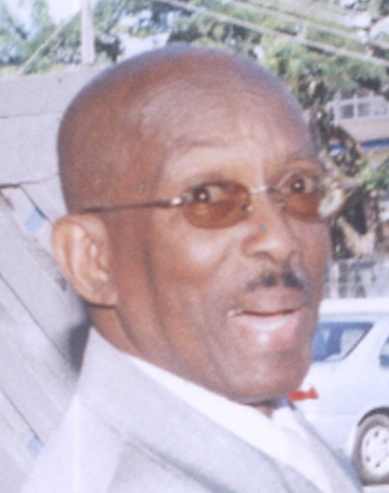Former PNCR general secretary Hamilton Green has signalled his willingness to act as a mediator between the party leadership and former executives who say it needs to embrace a new political culture.
According to Green, the party needs to resolve what he believes is “a problem of personality” and focus on the interests of the nation, especially in the light of government misrule and social and moral decline. “I am prepared to be the catalyst to let people understand that whatever may be our differences, we have a common peril and therefore one safety,” Green said in an interview with Stabroek News yesterday. “I see my role as being able to bring together all these groups, including [former party Executive James] McAllister, to understand we have a common peril,” he added.

Green’s statements come on the heels of the public withdrawal of former PNCR Vice-Chairman Vincent Alexander and supporters of his leadership campaign from party posts and a call by McAllister for party leader Robert Corbin to step down. Alexander made it clear that the decision was not based on simply personality, saying that fundamental issues regarding the culture within the party need to be addressed. McAllister, meanwhile, was removed by the PNCR from the National Assembly on the recommendation of a party disciplinary committee.
Green himself was expelled from the party following differences with late leader Desmond Hoyte after its defeat at the 1992 elections. He was readmitted to the party on a vote at last year’s congress. He said he has been sent a membership card and attends General Council meetings of the party. “My desire remains, as always, to secure the integrity, relevance and vibrancy of the party,” he said.
According to Green, both the party and its leadership face many challenges. He said the government is on a clear path to hegemony while there is a complex socio-political environment that requires grit and wisdom to overcome. “My own view is that the party needs to concentrate on harmonising and mobilising all those groups and individuals in Guyana who have a concern for the way the country is being run,” he explained. He added that the society has seen moral decline while the apparent gap between rich and poor is widening. “It means that those groups need to find a modus vivendi to take us over that high hurdle,” he said.
Asked about the need for the party to address the apparent internal disunity as a prerequisite to harmonising other groups, Green characterised the situation as a problem of personalities: “What you see is a problem of personalities and frustrations. I have passed through that myself and from the leader right down we have to overcome those real problems–because they are real–and put the interest of the nation as priority.” But he cautioned against viewing his statements as a criticism: “This must not be seen as criticism or condemnation of those who have broken away from or parted ways with the party for one reason or another or by one means or another.” He reiterated that whatever the differences between them, they face a common peril. At such a critical juncture, he said the party cannot afford a situation where the public gets the impression that it is weakening and incapable of providing strong leadership.
Still the major opposition party
He reminded that the PNCR is still the major opposition and while acknowledging that there is perception that there is a problem with leadership that needs to be addressed openly, he said it is not prudent to make it a matter of public debate as it runs the risk of creating a negative image of the state of the party. “Personally, I will continue the initiatives to heal the breaches, real or perceived, so that the party can recapture its status, within the context of the society, as dynamic and relevant,” he said.
Green explained that the party maintains democratic structures and it is the right of every member who feels he is qualified to challenge if he feels the existing leadership is not providing the kind of leadership conducive to the party. When asked whether there is a culture that would allow a viable challenge for leadership, he said: “When there is a storm, there will be damage to the ship and those who man and those who are on the ship. The way you rebuild, the way you survive, depends on the resilience of the leader and the team.” He added that any political party in this part of the world would face “the imponderable” unless it has an extremely strong and charismatic leader of the vintage of Cheddi Jagan or Forbes Burnham. He, however, reminded that they both emerged from the split of the PPP.
Green would not comment on McAllister’s statements about Corbin’s leadership or his feelings about the needs of the party. “He expressed a view, which he is entitled to do and I would rather not comment on those statements at this stage.” But he said he believes he can serve in capacity to help all groups and individuals, including McAllister to understand the common peril they face. (Asked his feelings about the recall legislation, which was used by the PNCR to oust McAllister from the National Assembly, Green would only liken it to fire, saying it can be a useful servant but a dangerous master.)
The real challenge, he said, is alerting the people to the erosion of the basic principles of good governance and democracy and he said not enough is being done.
Green noted that the government should not believe that it can ride roughshod over the fundamental principles of decency and democracy and feel immune. He cited the recent defeat of the AFC motion to widen local television access in Linden, describing it as a vulgar and brazen, particular for a government that trumpets the return of democracy. He cited the withdrawal of government ads from Stabroek News, the introduction of the Value Added Tax and the treatment of the municipality by the central government as other example of the government’s disregard.
Although he has not made it public, Green said he has initiated dialogue with several groups and has held private meetings with them. He said he would continue this process to show the state apparatus that the rest of the nation is not to be taken for granted while instances of the government’s misrule are being swept under the carpet.
Alexander has said that there is need for a new polity in the party and the country at large and for the commitments to democracy and free and fair elections to be realised. He put the party membership on alert that the core issues that formed the team’s platform and campaign have been completely ignored and said fundamental problems that prevent the party from rebuilding and reenergising need to be addressed.

